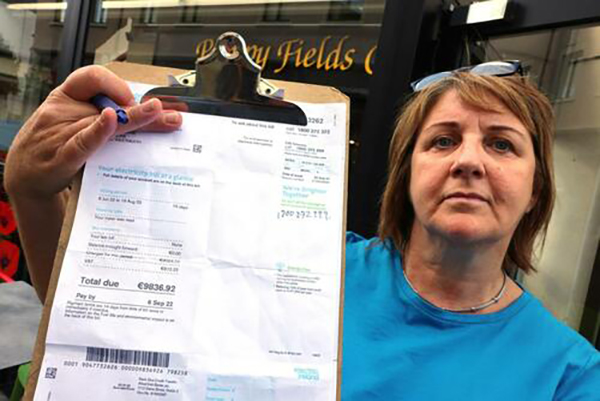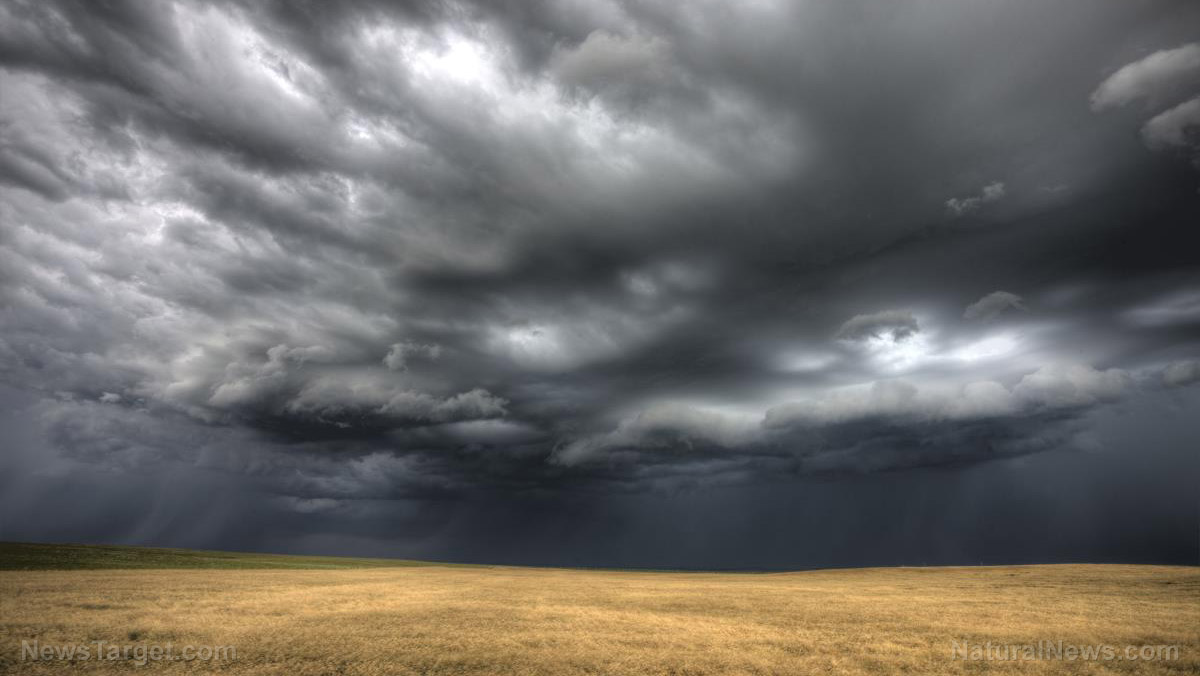Texans have filed multiple lawsuits against ERCOT for failing to adequately respond to the cold snap
02/23/2021 / By Arsenio Toledo

The Electric Reliability Council of Texas (ERCOT), the main body that manages the state’s primary electric grid, is being sued for ignoring repeated warnings regarding the vulnerabilities in Texas’ power infrastructure. A separate lawsuit involving the death of an 11-year-old, possibly to hypothermia, is accusing ERCOT of gross negligence and putting profits over the welfare of its customers.
Donald McCarley, a resident of Corpus Christi, filed a lawsuit on Friday, Feb. 19, in a Nueces County court alleging that ERCOT is directly responsible for the disastrous power grid failure in Texas because it failed to act upon warnings regarding the state’s electric infrastructure.
A law firm from Dallas is representing McCarley. His attorneys are arguing that the extended power outage substantially interfered with his use of his own home. Therefore, this entitles McCarley to compensation from ERCOT.
“The resulting widespread property damage from blackouts was caused by their negligence and gross negligence,” said the law firm in a statement. “In addition, the disruptions rendered private property unusable and amounted to an illegal ‘taking’ of private property by the government.
“Texas had practically identical failures in 1989 and 2011 that resulted in exhaustive reports and recommendations,” said Patrick Luff, one of the lawyers representing McCarley. “This was an emergency solely because of a failure to plan and learn previous lessons.”
McCarley is suing ERCOT, American Electric Power and AEP Texas. He is arguing that AEP and AEP Texas could have prioritized recommended weatherization upgrades as well as reforms to “their generation, transmission and distribution facilities.” The company could have prevented the statewide power grid failure with this massive overhaul, as well as increased production of power in the days leading up to the extreme weather, “but consciously chose not to do so.”

“As energy demand rose in February 2021, the supply of energy fell as outdated power generators failed, including power generators owned and operated by Defendants AEP and AEP Texas, depriving the Texas power grid of 45,000 megawatts of energy,” reads the lawsuit.
On Saturday, ERCOT sent a statement to NBC’s affiliate station in Austin, NXAN, regarding the lawsuit:
“We haven’t yet reviewed the lawsuits and will respond accordingly once we do. Our thoughts are with all Texans who have and are suffering due to this past week. However, because approximately 46 percent of privately-owned generation tripped offline this past Monday morning [Feb. 15], we are confident that our grid operators made the right choice to avoid a statewide blackout.”
Listen to this special Situation Update breaking news episode of the Health Ranger Report by native Texan Mike Adams, the Health Ranger, as he talks about the 15 hard lessons he learned while dealing with the collapse of the Lone Star state’s power grid and other vital systems.
Conroe family suing ERCOT and Entergy for the death of 11-year-old to hypothermia during the cold snap
The Corpus Christi suit is not the only case being brought before ERCOT. On Tuesday, Feb. 16, 11-year-old Cristian Pavon Pineda died in his family’s mobile home in Conroe, a suburb of Houston. The mobile home did not have power for over two days, during which time the temperature in the area plummeted to as low as 10 degrees Fahrenheit.
When he died, Cristian was sharing a bed with his three-year-old brother under a pile of blankets, trying to keep warm.
Cristian’s mother has filed a $100 million wrongful death lawsuit against ERCOT and Entergy Corporation, accusing both of gross negligence and being responsible for Cristian suffering hypothermia when the family lost electricity and heat in their mobile home. (Related: Dead bodies piling up in Texas amid power failure debacle.)
Similar to the Corpus Christi lawsuit, the family of Cristian is alleging that ERCOT and Entergy Corp. “put profits over the welfare of people” when it ignored previous recommendations to install necessary upgrades to its systems, including weatherization equipment.
“Despite having knowledge of the dire weather forecast for at least a week in advance, and the knowledge that the system was not prepared for more than a decade, ERCOT and Entergy failed to take any preemptory action that could have averted the crisis and were wholly unprepared to deal with the crisis at hand,” reads the lawsuit.
“This is a young man who died for no reason other than corporate decisions,” said Tony Buzbee, the attorney representing the Pineda family, during an appearance on ABC News on Sunday. “There are a lot of decisions that were made a long time ago that led to the death of this young man. That is unacceptable.”
Buzbee is currently representing at least six other families who lost loved ones due to the combination of the severe weather and the power failure, and said more lawsuits will be filed against Texas’s power companies.
“Cristian’s lawsuit is the first and his lawsuit should be the first,” said Buzbee. “This kid is going to change Texas and God bless him for that.”
“We are deeply saddened by the loss of life in our community,” said Entergy in its statement. “We are unable to comment due to pending litigation.”
While ERCOT is arguing it had no choice but to shut off power, Buzbee contends that the power was turned off for “those who were most vulnerable to the cold.”
“Hence, there were images of empty downtown Houston office buildings with power, but Pineda’s mobile home park was left without power,” reads the lawsuit.
The lawsuit further accused ERCOT of misleading its customers because the company assured them that the rolling blackouts would be temporary.
“The blackouts instead lasted days,” alleged the lawsuit. “The failure to adequately inform Plaintiffs of the length of the blackouts prevented them from properly preparing for the lack of power, or leaving the area. Accurate information might have saved Cristian Pineda’s young life.”
Instead of informing its customers that the blackouts would be extended, ERCOT sent out messages on its social media accounts recommending that customers save power by not doing laundry and unplugging their appliances.
Cristian emigrated from the small town of Tela, Honduras, where he was born, in 2019 to be reunited with his mother, Maria. A GoFundMe set up to raise money to send the boy’s body back to his place of birth has raised $88,400.
As of Sunday, at least 70 deaths have been attributed to the cold snap. Over a dozen of these deaths were people who passed away in homes that didn’t have heat, including Cristian. Other deaths attributed to the lack of heating include two older men who were found dead in their homes in the small West Texas town of Buffalo Gap, Taylor County.
Experts believe the true death toll of the sudden winter storm and the subsequent power grid failure is likely far higher, and will not be known for weeks or months.
“It’s a slow process,” said Chris Van Deusen, the spokesperson for the Texas Department of State Health Services. “We may have preliminary information in weeks, not days.”
Van Deusen said a statewide survey of the deaths caused by the storm is underway, but accurate information will not be available until all of the death certificates have been filed.
Learn more about the statewide power grid failure in Texas by reading the latest articles at Power.news.
Sources include:
Submit a correction >>
Tagged Under:
blackout, chaos, Collapse, Cristian Pineda, deaths, disaster, Donald McCarley, Electric Reliability Council of Texas, electricity, Entergy Corporation, ERCOT, grid down, heat, heating, lawsuits, power failure, power grid, power grid failure, Texas
This article may contain statements that reflect the opinion of the author
RECENT NEWS & ARTICLES
COPYRIGHT © 2017 COLLAPSE.NEWS
All content posted on this site is protected under Free Speech. Collapse.news is not responsible for content written by contributing authors. The information on this site is provided for educational and entertainment purposes only. It is not intended as a substitute for professional advice of any kind. Collapse.news assumes no responsibility for the use or misuse of this material. All trademarks, registered trademarks and service marks mentioned on this site are the property of their respective owners.





















